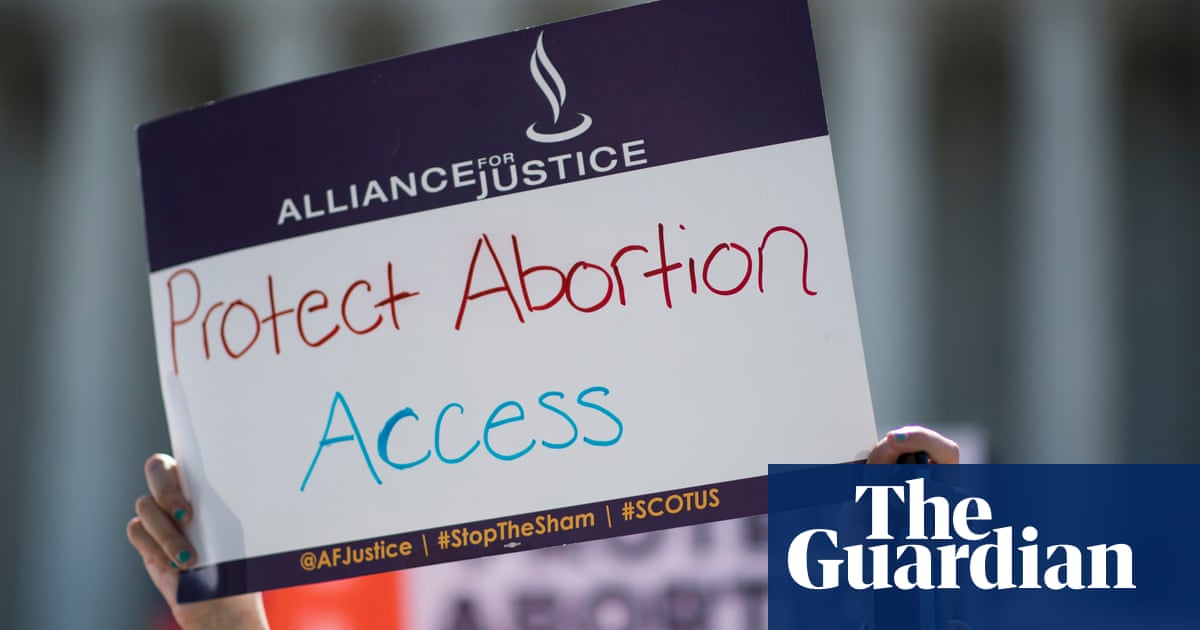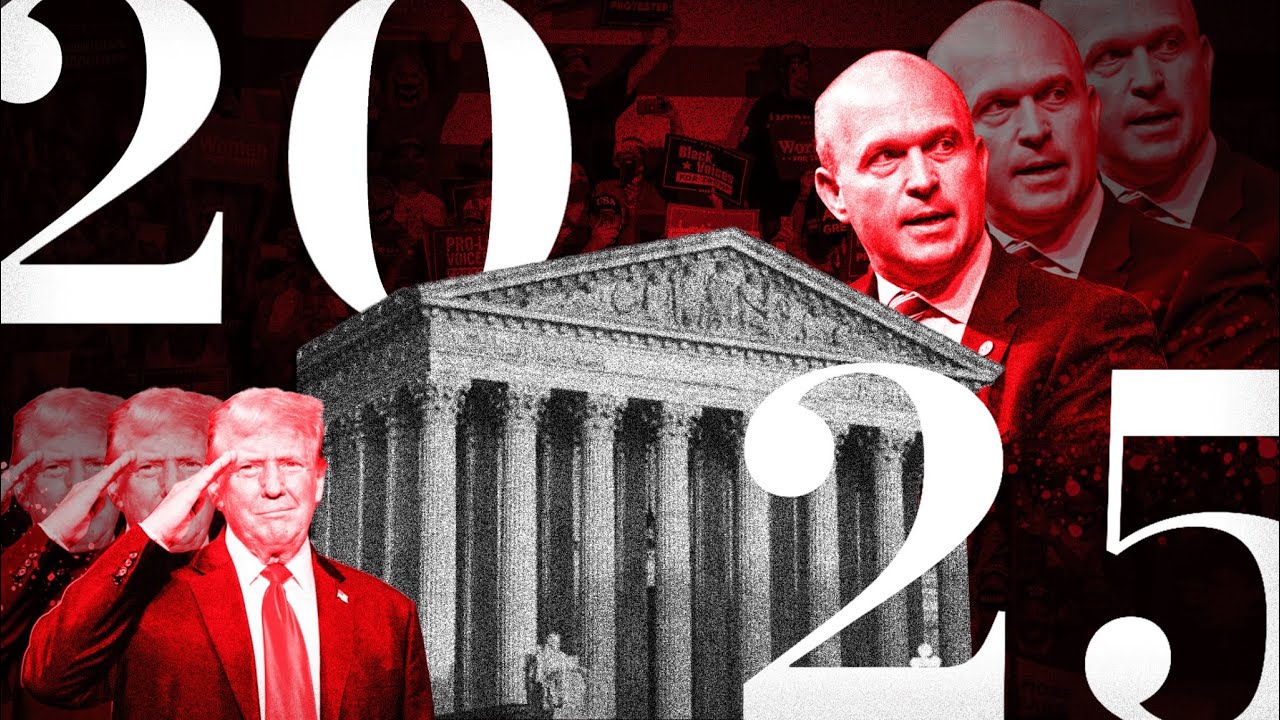Originally at https://www.texasaft.org
Project 2025 is a comprehensive policy agenda developed by the Heritage Foundation, a conservative think tank, in preparation for a potential Republican administration taking office in 2025. This 922-page document, officially titled ‘Mandate for Leadership,’ outlines a radical vision for reshaping American government and society according to far-right ideologies.
It’s important to note that Project 2025 is being developed with input from several figures closely tied to former President Trump, including Stephen Miller, John McEntee, and Ben Carson, as well as many former staffers. The involvement of these figures suggests that if Trump wins the presidency in 2024, there will a concerted effort to implement these policies rapidly, especially since “the Trump administration relied heavily on Heritage’s ‘Mandate’ for policy guidance, embracing nearly two-thirds of Heritage’s proposals within just one year in office,” according to the Heritage Foundation.
In short, Project 2025 represents an agenda that would dramatically alter the structure and function of the federal government, roll back civil rights protections, dismantle environmental regulations, and reshape American society in ways that would have profound negative impacts on public education, workers’ rights, and democratic institutions.
Again, the document is nearly 1,000 pages long. Here, we seek to summarize the biggest components of Project 2025 with implications for public education, including both K-12 and higher education, and labor, but perhaps the most damning and most apt summary of Project 2025 comes from the text of the document itself: “The federal government should confine its involvement in education policy to that of a statistics-gathering agency that disseminates information to the states.”
Public schools have been the bedrock of success in American history for centuries. In 2021, the U.S. Census found that 81.9% (65.1 million) of students attended a public K-12 school in the United States. A large amount of funding for these schools — over 20% in Texas in the 2022-2023 school year — comes from the federal government.
Project 2025 proposes sweeping changes to K-12 education that would have severe negative consequences for public education, educational equity, and the rights of students and educators:
- The plan calls for eventually eliminating the U.S. Department of Education. Many vital functions would be transferred to other agencies or eliminated entirely, potentially leading to inconsistent education policies nationwide.
- Abolishing the Department of Education would remove crucial federal oversight and involvement in K-12 education that ensures educational equity and protects students’ rights.
- The plan calls for Title I funding, critical for supporting students from low-income households, to be transferred to the Department of Health and Human Services and to be provided to states as a no-strings-attached block grant. Block grants are fixed sums of money given to states with no correlation to actual population needs.
- Over 10 years, responsibility for Title I funding would be fully restored to the states.
- Many other federal education programs would be eliminated or block-granted, further reducing overall federal education spending.
- The plan to convert Title I funding into block grants and eventually return full responsibility to states is alarming as it could lead to significant disparities in funding between states and reduce resources for disadvantaged students. More than 63% of public schools in the country were eligible to receive Title I funding in the 2021-2022 school year. Phasing out federal Title I funding would deprive tens of thousands of schools nationwide of the vital resources they need to support the success of their staff and students. The elimination or block-granting of other federal programs could further strain already tight education budgets.
- The plan strongly advocates expanding “school choice” options, including charter schools and vouchers/education savings accounts (ESAs). Ultimately, it envisions that “every parent should have the option to direct his or her child’s share of education funding through an education savings account (ESA), funded overwhelmingly by state and local taxpayers,” in part by allowing for the “portability of existing federal education spending to fund families directly or allowing federal tax credits to encourage voluntary contributions to K–12 education savings accounts.”
- It calls for expanding the D.C. Opportunity Scholarship Program, the Washington D.C. voucher program that has been found to negatively impact student learning and achievement, to all students, regardless of household income. It also calls for doubling the voucher amount from the current average of $10,000 to over $20,000 per recipient.
- It proposes creating ESAs (another term used for vouchers) for students in military families and those attending Bureau of Indian Education schools.
- It urges the Department of Education to:
- Rescind new priorities, requirements, definitions, and grant selection criteria implemented in 2022 relating to the award of federal grants to applicants through the federal Charter School Program.
- Lessen the federal restrictions on charter schools.
- We strongly oppose the push for expanded school privatization, which is currently advancing in Texas with support from dark-money organizations funded by home-grown and out-of-state billionaires. These programs divert funds from public schools, exacerbate educational inequities, and weaken the public education system. Further, the expansion of charter schools would further drain public schools’ resources and drive further segregation and inequality.
- The Office for Civil Rights would be moved to the Department of Justice, weakening enforcement of crucial protections for students.
- It calls for rescinding Obama Administration-era guidance on school discipline that addressed racial disparities, potentially contributing to educational inequities and further entrenching the “school-to-prison pipeline.”
- The plan opposes addressing systemic racism and gender identity issues in schools, which could create hostile environments for many students.
- The plan proposes banning the use of federal funds for “critical race theory”-based training in schools.
- For K-12 systems under federal authority (including Washington D.C. public schools, Bureau of Indian Education schools, and Department of Defense schools), it calls for:
- Prohibiting “compelled speech,” especially ideas that violate state and federal civil rights laws.
- Preventing the spread of so-called CRT-based discrimination.
- It suggests designing legislation to prevent CRT from spreading what it characterized as discrimination in schools.
- The plan calls for significant changes to Title IX interpretation and enforcement, which could have profound implications for LGBTQIA+ students.
- It proposes defining “sex” under Title IX to mean only biological sex recognized at birth, rejecting the inclusion of gender identity and sexual orientation.
- Specifically regarding pronouns, the plan suggests:
- Prohibiting public education employees from using names or pronouns for students that differ from their biological sex without written parental permission.
- Allowing education employees to refuse to use pronouns that don’t match a person’s biological sex if it conflicts with their religious or moral convictions.
- These changes could significantly reduce protections for transgender and non-binary students in schools. Implementation of these policies could lead to increased challenges for LGBTQIA+ students in school environments, potentially affecting their safety, mental health, and educational outcomes.
- The plan emphasizes a “Parents’ Bill of Rights” that would transfer a significant degree of control over curriculum away from experts. While we support parental involvement in their children’s education, the proposed “Parents’ Bill of Rights” could potentially interfere with educators’ professional judgment and curriculum decisions that affect all students.
- The Individuals with Disabilities Education Act (IDEA) funding would be converted into a no-strings-attached formula block grant.
- Oversight of IDEA would be moved to the Department of Health and Human Services.
- The plan suggests allowing families to use IDEA funds for private learning options and related expenses, similar to the structure of voucher programs.
- Converting IDEA funding to a block grant could lead to inconsistent support for students with disabilities across states. We’re concerned this change could result in reduced services for some of our most vulnerable students.
- The plan calls for reforming federal education data collection, including making student data available by family structure, which raises privacy concerns.
- It proposes giving parents and students over 18 a private right of action to enforce the Family Educational Rights and Privacy Act (FERPA) and the Protection of Pupil Rights Amendment (PPRA), which could lead to increased litigation against schools.
- The plan calls for rescinding the National Education Association’s (NEA’s) congressional charter.
- It criticizes both the NEA and the American Federation of Teachers (AFT) using litigation and lobbying efforts to block vouchers and advocate for increased education spending, threatening to potentially weaken educators’ collective bargaining power (in states with such worker protections) and ability to advocate for themselves and their students.
- The plan accuses these unions of promoting so-called radical racial and gender ideologies.
- The plan’s attacks on the NEA and AFT are a direct threat to organized labor in education and educators’ rights in the workplace.
- The plan opposes efforts to expand federal school meals to all K-12 students regardless of need as proposed by some members of Congress and the Biden Administration.
- The plan recommends eliminating the Community Eligibility Provision (CEP), which currently allows schools or districts with 40% or more eligible students to offer free meals to all students. It also proposes restricting summer meal programs to students attending summer school classes, rather than providing meals to all students during summer months. The opposition to universal school meals is troubling, as these programs have been crucial in addressing food insecurity.
- The plan suggests moving school nutrition programs from the Department of Agriculture to the Department of Health and Human Services. Moving nutrition programs to HHS could disrupt well-established systems and potentially reduce access.
- It recommends against using federal meal programs to “advance ideological agendas,” such as the USDA’s attempt to tie meal funding to schools’ implementation of the Biden Administration’s updated interpretation of Title IX.
- These changes could increase food insecurity among students. According to a recent study, Texas already leads the nation in food insecurity.
- The plan recommends reforming emergency food assistance programs, including the implementation of stricter eligibility requirements or time limits for emergency food assistance. These changes could leave many families without crucial support during times of need.
Project 2025 represents a serious threat to K-12 public education, labor rights, and the well-being of students and educators. The plan’s push for privatization, reduced federal oversight, and weakened labor protections could exacerbate educational inequities and undermine the foundations of our public education system.
We are particularly concerned about the potential impact on students from low-income households, students of color, LGBTQIA+ students, and students with disabilities. The proposed changes could roll back decades of progress in civil rights and educational equity.
Furthermore, the attacks on educators’ unions and the proposed changes to education funding could significantly impact our members’ working conditions and their ability to provide a high-quality education to all students.
Project 2025 also proposes significant changes to higher education policy that could fundamentally alter the landscape of postsecondary education in the United States:
- The plan calls for completely reversing the 2010 student loan federalization.
- It proposes spinning off the Office of Federal Student Aid and its student loan obligations to a new government corporation with professional governance and management. This new entity would be governed by an agency head and board of trustees appointed by the president with Senate confirmation.
- Federal loans would be assigned directly to the Treasury Department for collections and defaults management.
- This restructuring could lead to reduced oversight and likely predatory practices in student lending, potentially harming vulnerable students.
- The plan recommends privatizing all lending programs, including subsidized, unsubsidized, and PLUS loans.
- If privatization is not pursued by Congress, it suggests consolidating all federal loan programs into one new program with income-driven repayment (including an income exemption equal to the federal poverty line), no interest rate subsidies or loan forgiveness, and annual and aggregate borrowing limits.
- It calls for eliminating Grad PLUS loans and Parent PLUS loans, and termination of the Public Service Loan Forgiveness program.
- These changes could significantly reduce access to higher education, especially for low-income students and graduate students, and could discourage individuals from pursuing public service careers.
- The plan proposes a radical overhaul of accreditation requirements.
- It proposes prohibiting accreditation agencies from leveraging their Title IV gatekeeper role to mandate that educational institutions adopt diversity, equity, and inclusion (DEI) policies.
- It suggests protecting faith-based institutions by prohibiting accreditation agencies from requiring standards and criteria that undermine the religious beliefs of, or require policies or conduct that conflict with, the religious mission or religious beliefs of the institution. Further, it calls for revoking the ability of accreditors to intrude on the governance of colleges and universities controlled by a religious organization.
- It proposes revamping the system for recognizing accreditation agencies, potentially allowing states to recognize accreditors for Title IV purposes.
- These changes could lead to a weakening of educational standards and a potential rollback of DEI efforts in higher education.
- The plan calls for many higher education programs to be eliminated or moved to other agencies, such as the Department of Labor.
- Department of Education funding to institutions would be block-granted and narrowed to Historically Black Colleges and Universities (HBCUs) and tribally controlled colleges.
- Programs deemed important to national security interests would be moved to the Department of State.
- This restructuring could lead to a fragmented approach to higher education policy and potentially reduce support for many institutions and programs.
- The plan suggests moving higher education data collection to the Department of Labor to provide more transparency in evaluating postsecondary education outcomes.
- It proposes developing a methodology for risk-adjusting institutional outcomes to reflect the value added by education programs rather than just admissions selectivity.
- This shift could lead to an overemphasis on employment outcomes at the expense of other important aspects of higher education, such as critical thinking and civic engagement.
- The plan calls for new regulations to clarify requirements for competency-based education programs, aiming to make them more accessible within the federal financial aid system.
- This change could potentially undermine traditional models of education and lead to a narrowing of educational experiences to focus solely on job-related skills.
- The plan proposes reversing the Biden Administration’s refusal to enforce Section 117 of the Higher Education Act, which requires reporting of foreign gifts and contracts.
- It calls for investigating institutions that fail to report foreign funding and potentially tying compliance to federal financial assistance eligibility.
- These changes could potentially harm international academic collaborations and exchange programs, and they seem to be influenced by xenophobic fears.
- The plan suggests winding down “area studies” programs at universities (Title VI of the HEA).
- It proposes allocating at least 40% of the remaining funding to international business programs that teach about free markets and economics.
- These changes could lead to a significant reduction in funding for important cultural and language studies programs, potentially harming U.S. diplomatic and intelligence capabilities.
These proposed changes represent a significant shift in federal higher education policy, potentially altering how students access and pay for higher education, how institutions are accredited and funded, and how the federal government oversees and regulates the higher education sector. The implications would be far-reaching, leading to a more market-driven higher education system, reduced federal involvement in student lending, and significant changes to how institutions are held accountable for student outcomes.
These changes could reduce access to higher education, particularly for low-income and underrepresented students, and potentially weaken important oversight mechanisms. We are also concerned about the potential narrowing of educational focuses and the possible negative impacts on diversity, equity, and inclusion (DEI) efforts in higher education.
Project 2025 proposes significant changes to labor and employment policies that could fundamentally alter the landscape of workers’ rights and protections in the United States.
- The plan calls for eliminating all DEI projects in labor policy.
- It proposes banning critical race theory training and prohibiting the use of racial classifications in employment.
- This change could roll back progress on workplace diversity and inclusion, potentially leading to increased discrimination and reduced opportunities for marginalized groups.
- The plan suggests eliminating EEOC’s collection of EEO-1 data on employment statistics based on race/ethnicity.
- It proposes eliminating disparate impact liability under Title VII.
- This change could significantly weaken enforcement of anti-discrimination laws and make it harder to identify and address systemic discrimination in the workplace.
- The plan recommends eliminating OFCCP and rescinding Executive Order 11246, which requires federal contractors to take affirmative action.
- This change could reduce oversight of federal contractors and potentially lead to increased discrimination in companies that receive federal funds.
- The plan calls for robust protections for religious employers and employees, including allowing religious organizations to make employment decisions based on religion regardless of nondiscrimination laws.
- This change could lead to increased discrimination against LGBTQIA+ individuals and those with different religious beliefs.
- The plan proposes significant changes to union regulations, including eliminating the “card check” process for union recognition and the “contract bar” rule.
- It suggests making it easier for workers to decertify unions.
- These changes could significantly weaken labor unions’ power and ability to organize workers, potentially leading to reduced worker protections and bargaining power.
- The plan suggests maintaining the Trump Administration-era overtime threshold and clarifying that the “regular rate” for overtime pay is based on salary rather than all benefits provided.
- It proposes returning to the Trump Administration’s independent contractor rules which significantly weakened worker protections by making it easier for employers to misclassify employees as independent contractors Those rules used an overly narrow definition of employment, focusing primarily on the level of control a worker has over their work. This approach ignores the economic realities of many modern work arrangements, especially in the gig economy, where workers are often economically dependent on a single company despite having some flexibility in their schedules. The plan falsely claims these rules provide “clarity,” when in reality they create a loophole for companies to exploit workers. The misclassification of workers denies them crucial benefits, protections, and rights, including minimum wage, overtime pay, unemployment insurance, and the right to unionize.
- These changes could result in fewer workers being eligible for overtime pay, reduced overtime pay, and the misclassification of workers as independent contractors, denying them benefits and protections.
- The plan calls for expanding apprenticeship programs outside of the Registered Apprenticeship Program model.
- It suggests allowing religious organizations to participate in apprenticeship programs.
- These changes are likely to reduce oversight and quality control of these programs and could harm funding for high-quality apprenticeship programs offered by labor unions like the AFL-CIO.
- The plan proposes capping and phasing down H-2A and H-2B visa programs.
- It suggests allowing employers to prefer U.S. citizens in hiring.
- These changes could lead to labor shortages in certain industries and potentially increase undocumented immigration due to the restriction of work-based opportunities for immigration under federal law.
- The plan calls for prohibiting Environmental, Social, and Governance (ESG) considerations in Employee Retirement Income Security Act (ERISA) plans. ERISA is a federal law that sets minimum standards for most voluntarily established retirement and health plans in private industry to provide protection for individuals in these plans.
- It proposes reforms to multi-employer pension plans and the Pension Benefit Guaranty Corporation.
- While ostensibly aimed at protecting retirement savings, these changes could limit investment strategies and potentially affect pension stability as we have seen in Texas and across the country in states that have enacted anti-ESG legislation.
These proposed changes represent a significant shift in federal labor and employment policy, potentially altering how workers are protected, how unions operate, and how employers manage their workforce. The implications could be far-reaching, potentially leading to a more employer-friendly labor market with fewer regulations and reducing protections for workers, especially those from marginalized groups.
These changes could significantly weaken worker protections, reduce the power of labor unions, and potentially lead to increased workplace discrimination. We are deeply concerned about the potential rollback of decades of progress in labor rights and civil rights in employment.
The overall impact of these proposed changes would likely be a significant reduction in federal oversight and regulation of labor and employment practices, with more power given to employers and states to set their own standards. This could lead to greater variability in worker protections and rights across different states and employers.
As advocates for public education and the rights of educators and school employees, Texas AFT stands firmly against these proposals. We believe in a strong, well-funded public education system that serves all students, respects educators’ and school employees’ professionalism, and maintains crucial protections for civil rights and labor rights.
The Heritage Foundation describes Project 2025 as “the conservative movement’s unified effort to be ready for the next conservative administration to govern at 12:00 noon, January 20, 2025.” This level of preparation and coordination among right-wing extremist groups should be a wake-up call for all who value public education, workers’ rights, and our democratic institutions.
In the weeks and months to come, we must redouble our efforts to inform voters about the dangerous agenda represented by Project 2025 and elect candidates who will support policies that will allow students, educators, and school employees to thrive.
Read the Original Story





